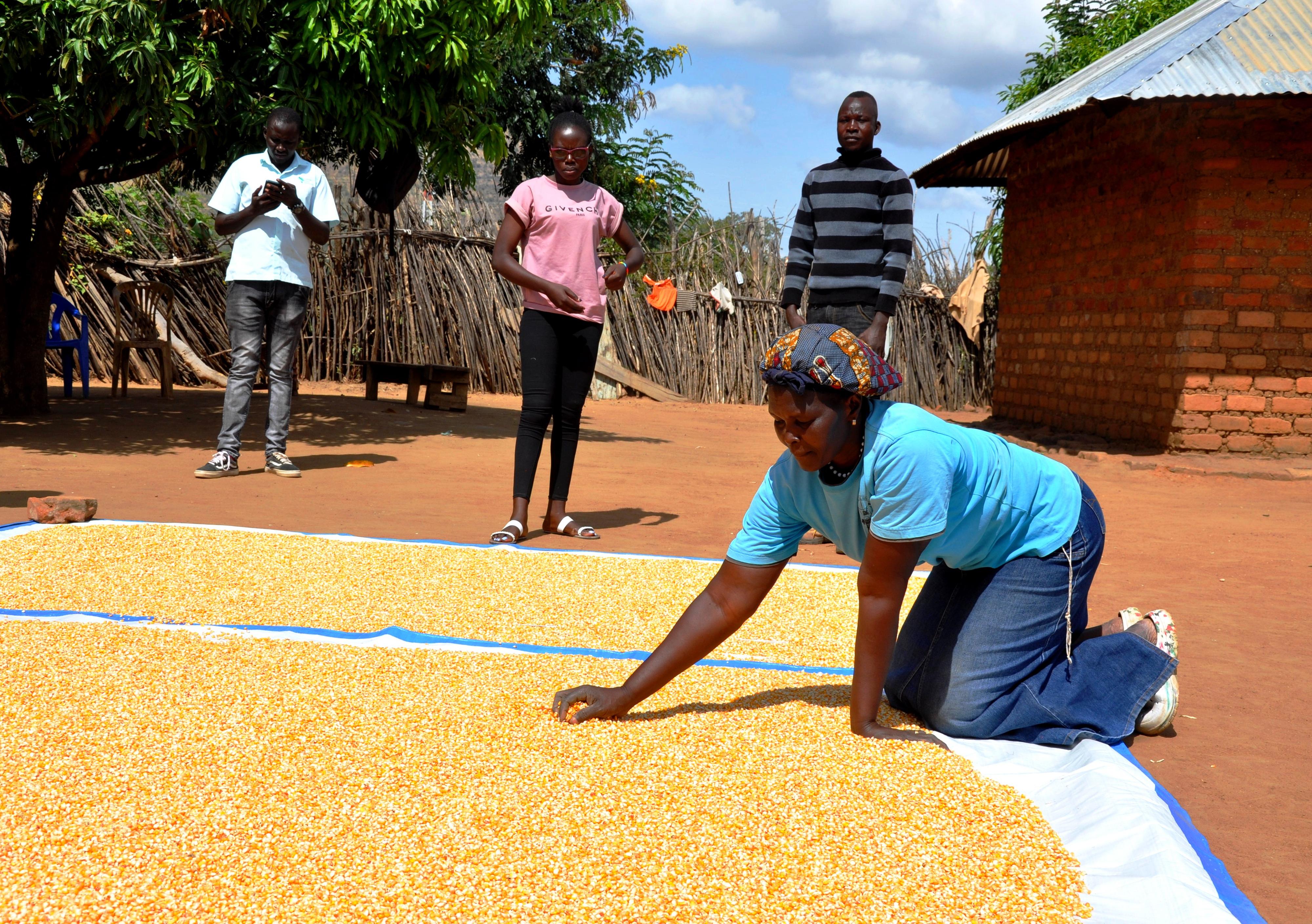Govt launches new bean variety to fight hunger in Karamoja

Ms Maria Goretti Kitutu, the Minister for Karamoja Affairs (2nd left), with other stakeholders launch the Narobean seven seed variety in Kotido Town last week. PHOTO/SIMON PETER EMWAMU
What you need to know:
Ms Maria Gorreti Kitutu, the Minister for Karamoja Affairs, told stakeholders last week in Kotido District at the launch of the narobean seven bean variety that the seeds are rich in iron and zinc, which are key nutrients in fighting malnutrition
The National Agricultural Research Organisation (Naro) and its development partners have rolled out a new bean variety to fight malnutrition in Karamoja Sub-region.
Ms Maria Gorreti Kitutu, the Minister for Karamoja Affairs, told stakeholders last week in Kotido District at the launch of the narobean seven bean variety that the seeds are rich in iron and zinc, which are key nutrients in fighting malnutrition.
Ms Kitutu said the government has provided Shs300m towards the multiplication of seed at Nabuin Agricultural Research Institute in Karamoja so that the seeds reach every household in the sub-region.
“We have Shs300m for that multiplication seed chain. We also have a memorandum with Namalu prison of Shs500m to produce maize grain for the primary school children,” Ms Kitutu said.
Dr Stanley Nkalubo, a plant breeder at Namulonge agricultural and animal research institute, said after initial trials of the beans, they have zeroed on to Narobean 7 for Karamoja because it is adaptive to the weather.
He said the variety is rich in iron and zinc, tasty, and matures within 75 days.
“We thought it wise to have a solution-based crop for Karamoja, we are glad that these beans will bridge the gap,” Mr Nkalubo said.
He said the research on these bean crops started in 2012 and by 2016, some varieties were released.
“We thank the partners who have helped in seed multiplication,” Mr Nkalubo added.
Dr Laban Turyagenda, the director of Ngetta Zonal Agricultural Research and Development Institute, said their intention is to reduce the malnutrition levels in Karamoja from 40 percent to at least 30 percent.
He added that when the project is fully supported, it can also help reduce poverty since the beans are high-yielding.
Dr Turyagenda said Narobean 7 is also rich in fiber.
“When the technology offered is embraced here fully, we shall not have cases of stunted growth,” he said.
Dr Wilberforce Tushemereirwe, the project leader, thanked Feed the Future organisation for the support which has enabled the project progress.
He said the beans have already been piloted in 21 schools in Kotido, 14 in Kaabong and the response is positive.
Mr Ismail Muhammad Lomwar, the Kotido Municipality MP, said insecurity should be addressed to enable an environment for farming.




